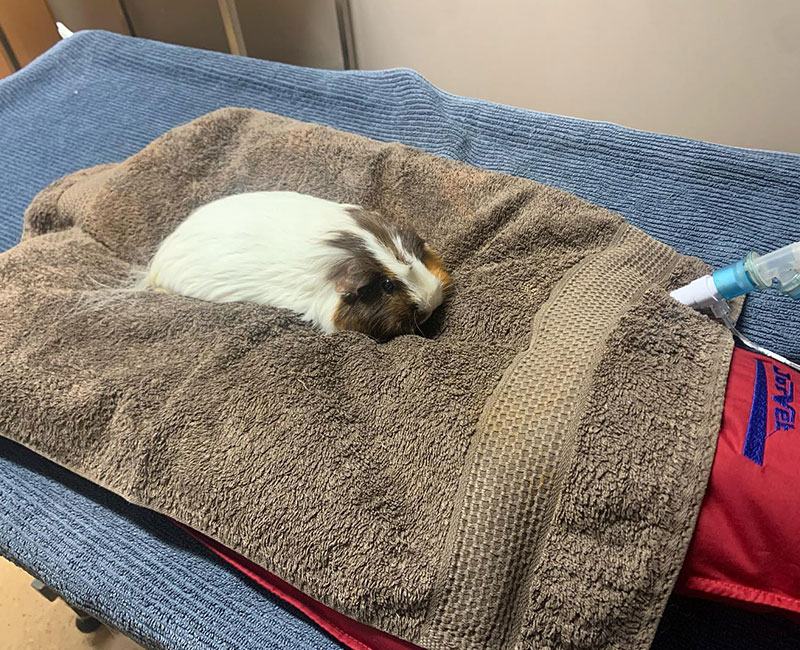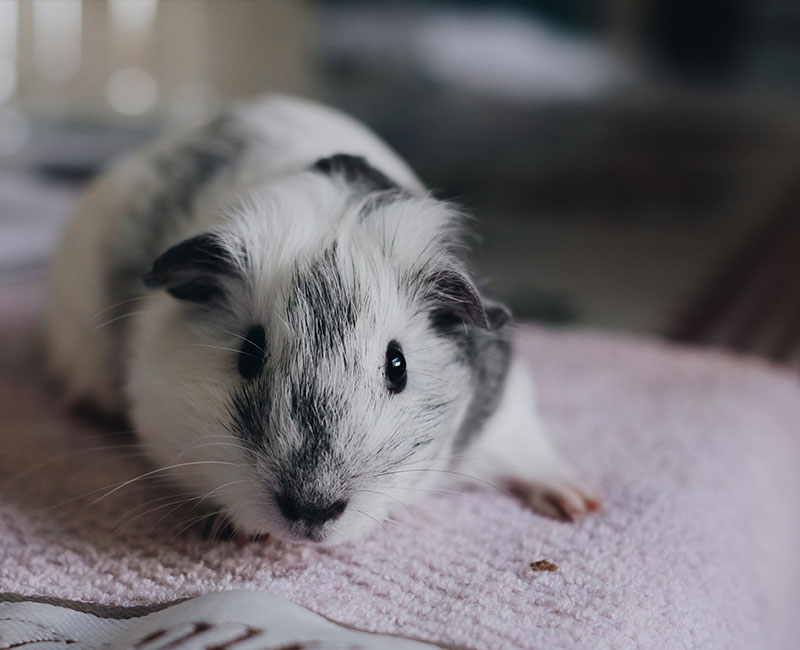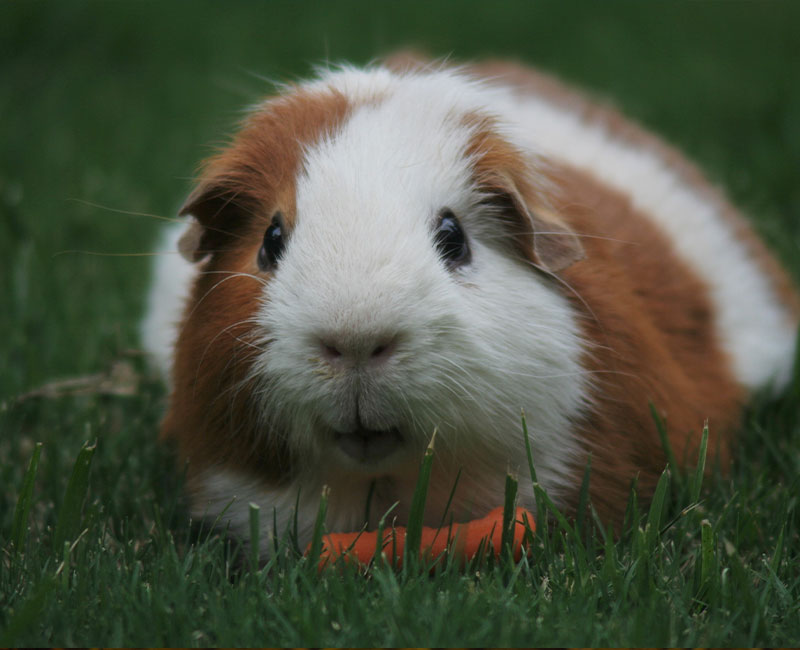General Health Care for Guinea Pigs
Health tips and advice for your furry little friends

Sterilisation
According to the 2006 Guinness Book of Records the longest living guinea pig survived 14 years, 10.5 months.
Sterilising Your Guinea Pig
Sterilising or de-sexing is recommended for both males and females at 3-6 months of age.
The guinea pig is able to breed all year-round, with birth peaks usually coming in the spring; as many as five litters can be produced per year. The gestation period lasts from 59–72 days, with an average of 63–68 days. Males reach sexual maturity between 3 to 5 weeks old; females can be fertile as early as four weeks old and can carry litters before they are adults. Females that have never given birth commonly develop irreversible fusing of the pubic symphysis, a joint in the pelvis, after six months of age. If they become pregnant after this has happened, the birth canal will not widen sufficiently; this may lead to dystocia and death as they attempt to give birth. Females can become pregnant 6–48 hours after giving birth, but it is not healthy for a female to be this constantly pregnant.
Sterilisation Procedure
Do NOT fast your guinea pig before you bring her to the hospital. Please bring a small lunch pack with her when you drop her off at Hilton Vet. We need to get her to eat as soon as she wakes up from anaesthesia.
Your guinea pig will receive intramuscular sedation that will make her fall asleep in 5 to 10 minutes. Once she is asleep, we then clip the fur on and around the ventral abdomen and prepare the area for surgery. She will then be placed on gas anaesthesia for the duration of the surgery. A small incision in made just behind the belly button and the uterus and ovaries are removed. The abdominal muscle and skin is then closed with absorbable sutures. The sutures are hidden underneath the skin so your guinea pig won’t be able to pull them out. There is no need to remove any stitches later on. Once she wakes up, we give her the lunch pack that you left with her in the morning. As soon as she eats her food, we know she is fine to go home. You will then get a phone call from us to organise a discharge time.

Guinea Pig Castration
Do NOT fast your guinea pig before you bring him to the hospital. Please bring a small lunch pack with him when you drop him off at Hilton Vet. We need to get him to eat as soon as he wakes up from anaesthesia.
Your guinea pig will receive intramuscular sedation that will make him fall asleep in 5 to 10 minutes. Once he is asleep, we then clip the fur on and around the testicles and prepare the area for surgery. He will then be placed on gas anaesthesia for the duration of the surgery. A small incision is made over each testicle, and they are removed. There will be absorbable sutures to tie off the blood vessels, but no skin sutures are used. A small amount of medical tissue glue is used to close the skin. There is no need to remove any stitches later. Once he wakes up, we give him the lunch pack that you left with him in the morning. As soon as he eats his food, we know he is fine to go home. You will then get a phone call from us to organise a discharge time.

Recommended Diet For Guinea Pigs
Grass is the guinea pig’s natural diet. Their molars are particularly suited for grinding plant matter as their teeth grow continuously throughout the animal’s life. Most grass-eating mammals are quite large and have a long digestive tract; while guinea pigs have much longer colons than most rodents, they must also supplement their diet by coprophagy, the eating of their own faeces. However, they do not consume all their faeces indiscriminately, but produce special soft pellets, called cecotropes, which recycle B vitamins, fibre, and bacteria required for proper digestion. The cecotropes (or caecal pellets) are eaten directly from the anus, unless the guinea pig is pregnant or obese. They share this behaviour with rabbits.
Guinea pigs can be fed Alfalfa, parsley, peppers, corn on the cob, cucumber, carrots, celery, apples and melon without the seeds, cauliflower leaves, broccoli and lettuce. Make sure the food is always fresh and not left in the cage for more than three hours. The fresh food can be supplemented with 50% commercial pellets. Make sure you never feed cake, biscuits, potatoes, chocolate or dairy to your Guinea Pigs.
Flea Control
We recommend Advantage top spot for guinea pigs. The kitten or puppy Advantage is the correct size for a fully grown guinea pig and is safe to use. It can be used once a month.
Call our team for any further information about caring for your pet guinea pigs. We’ll be happy to help!
Guinea Pig owners from all over Fremantle, Hilton, Hamilton Hill, O’Connor, White Gum Valley, Beaconsfield, Willagee, Samson, Coolbellup, Kardinya, Spearwood and Coogee have been coming to Hilton Vet Hospital for more than 30 years to receive exceptional service and care for their pets.
